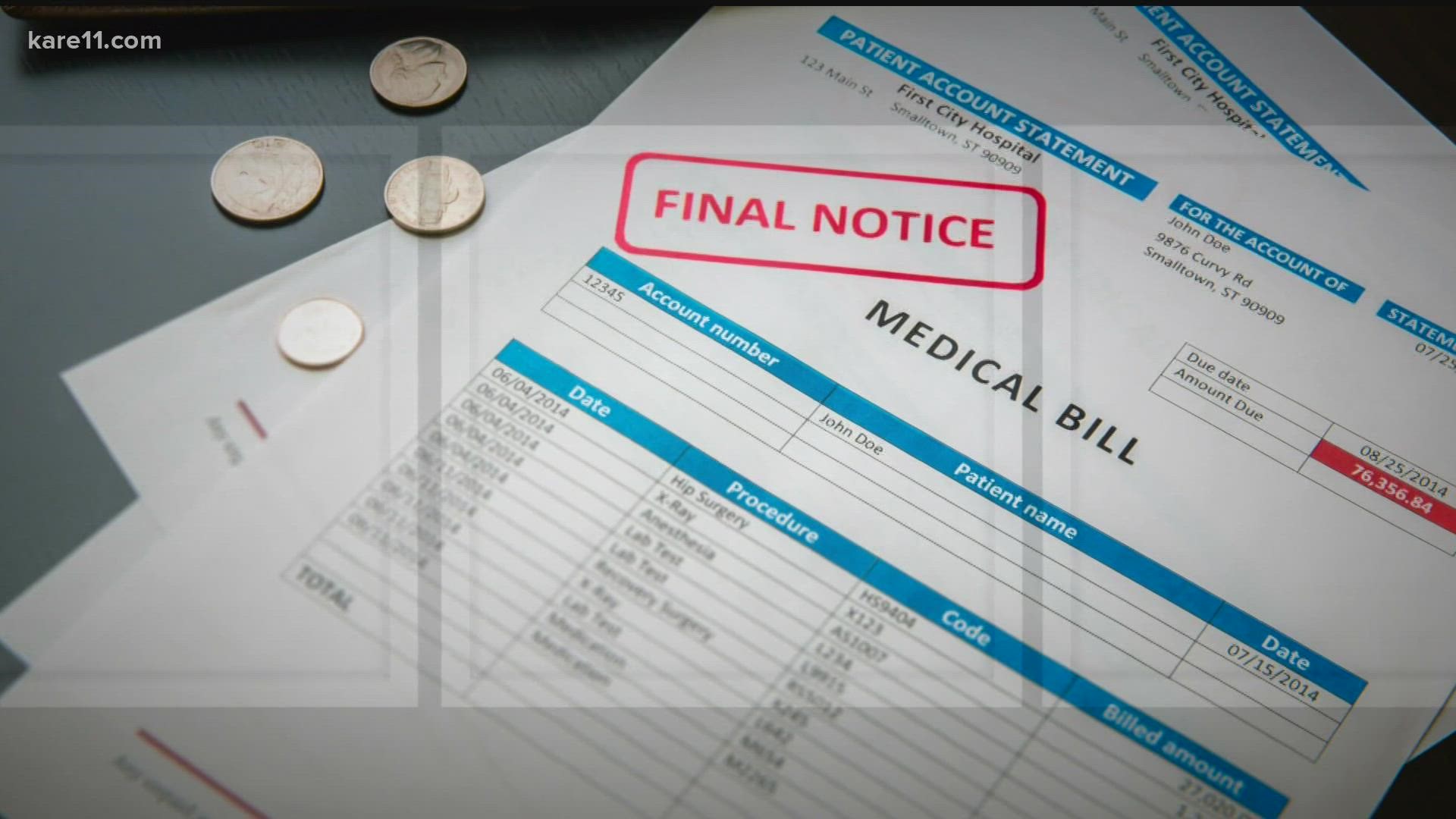MINNEAPOLIS — Because of the COVID-19 pandemic, a new law that took effect on Jan. 1 may have slid under the radar.
The law, passed in 2020, is meant to protect consumers and patients from surprise medical bills.
Part of the impetus behind this "No Surprises Act," is a scary statistic. According to Debt.org, the No. 1 reason Americans declare bankruptcy is due to medical debt.
Jon Hess of Athos Health has seen and heard plenty about this, as a healthcare consultant.
"I can tell you stories out there of people who have had to have emergency surgery, and the surgeon on call was out of network and the bill was $40,000 because of it," Hess said. "And they had no choice, it was just who was on call. They didn't schedule [the surgery], they didn't plan it, that kind of debt is debilitating."
The No Surprises Act addresses that.
Even when seen by an out-of-network anesthesiologist, radiologist or a pathologist, as long as the visit took place at an in-network facility, the patient would no longer have to foot the bill.
In the past, the patient would have had to pay the difference between the insurance's in-network coverage amount and the charge from the out-of-network provider, which is referred to as a "balance bill."
The other component of the law is that when there's an emergency involved — nothing is considered out-of-network.
"A lot of insurers, if it was truly an emergency, would cover as if it was in-network, but not all of them; it was dependent upon your plan," Hess explained. "Now the federal law makes them."
Plus, in a scenario in which you deliberately choose to seek out-of-network care, or if you are uninsured, the law mandates that providers tell you a ballpark idea of how much a certain procedure will cost.
"It used to be the provider didn't have to give you an estimate," Hess said. "Now as long as its scheduled 96 hours in advance, they have to provide you with what that cost is going to be for you out of pocket. That will include what the insurance company says you're going to owe after you hit your deductible, out-of-pocket maximum and what they are going to balance bill you. The whole point was the consumers were going to go in eyes wide open."
And if that estimate is off by more than $400, the law gives you the right to dispute that charge, as long as the dispute is filed within 120 days of the billing date.
Hess does warn, with this infrastructure just catching up, the dispute process might be challenging.
"With COVID and everything going around that's been the focus, and so people are trying to react to this bill, as it's been implemented," he said.
Even with these protections in mind, Hess says his advice is always the same.
"My recommendation still, even with the No Surprise Act, it's a great first step," he said. "It's wonderful, but go in network if you can."
Watch more Breaking The News:
Watch all of the latest stories from Breaking The News in our YouTube playlist:

